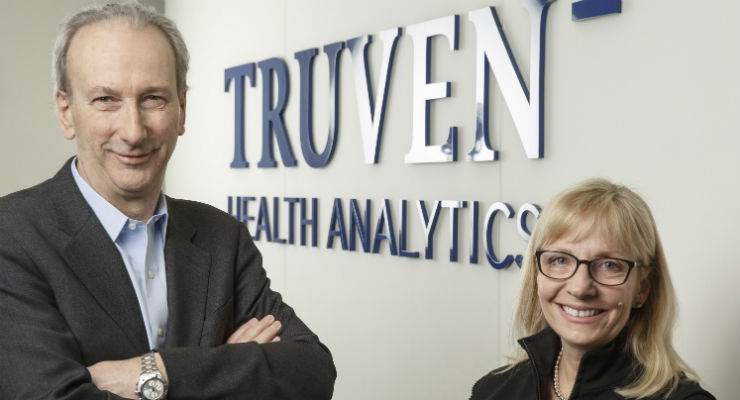IBM’s Watson Health just laid down $ 2.6 billion to buy a cloud-based healthcare data, analytics and insights provider from Veritas Capital. Will Big Blue’s big bet on Truven Health Analytics pay dividends in the near-term?
On the surface, it appears to a strategic buy. Truven has over 8,500 clients spanning hospitals, health plans, clinicians, life science companies and U.S. state and federal government agencies. With the acquisition, these clients become part of the Watson Health portfolio and give IBM bragging rights for holding one of the most extensive and diverse arrays of healthcare-related data.
To put the breadth into perspective, about 33 percent of Americans rely on Truven’s data and insights to make decisions about their healthcare benefits, IBM said in a statement today. All told, Watson hosts an aggregate of about 300 million patient records.
IBM was attracted to Truven because of its “impressive team, extensive client roster, and expansive data sets” that complement Watson Health’s existing resources, said Deborah DiSanzo, general manager for IBM Watson Health, in the statement. Truven’s cloud-based data set includes hundreds of types of claims, cost and quality and outcome data.
IBM’s Achievable Goal
We asked Charles King, principal analyst at Pund-IT, for his thoughts on the $ 2.6 billion acquisition. He told us it’s safe to say IBM is a leading player in healthcare analytics, especially given the size of its investment in the space.
“Truven’s technology assets and 8,500 customers make it a particularly valuable acquisition for IBM but the potential market is far larger and getting bigger every day,” King said. “What this deal makes clear is that IBM intends to be a leading player in healthcare analytics for a very long time to come. Given the company’s internal investments, such as Watson Health, and continuing external acquisitions, that goal seems fully achievable.”
IBM has now acquired four major health-data related companies since it announced its Watson Health unit in April 2015. Big Blue also acquired Phytel (focused on population health), Explorys (focused on cloud-based healthcare intelligence) and Merge Healthcare (focused on medical imaging).
After the Truven deal closes later this year, IBM will have invested a whopping $ 4 billion to acquire and develop its cognitive healthcare tools that aim to help improve patient outcomes, forward value-based care programs and control costs. Watson Health’s partner and client roster includes Apple, Medtronic, Johnson & Johnson, Novo Nordisk, and CVS Health.
Adding Value to Healthcare
Value-based care is emerging as a strategic healthcare model, according to IBM. The goal is to improve the quality of care while simultaneously controlling costs and delivering better patient outcomes long-term.
With the fee-based care model of reimbursing providers for health care, physicians and organizations have incentives to ‘do” more, according to healthcare system Dartmouth-Hitchcock. The more tests they order, the more patients they see and procedures they do, the more money they will make, Dartmouth-Hitchcock said in a statement.
By contrast, Dartmouth-Hitchcock said a value-based model focuses on “quality over cost over time” and relies on evidence-based medicine and proven treatments and techniques that take into account the patients’ preferences.
“While traditional health systems have paid for volume based on a fee-for-service model, value-based care models use payment incentives that aim to advance quality outcomes at lower cost,” IBM said in the statement. “This payment model requires that providers, payers and other stakeholders have evidence — data and insight — to document how specific elements of care contribute to achieving a target health outcome for a given cost.”
King said the acquisition helps IBM achieve its objectives in two ways. First, the deal brings Truven’s 40-plus years of experience and 5,000 employees to IBM. King called that a “platinum-quality” braintrust to acquire in a single deal. But Truven’s relationships with its 8,500-plus customers is just as important, he added.
“It would take any company — even one with the assets that IBM can bring to bear on such an endeavor — years to build a client base of similar size and depth,” King said. “Overall, IBM should reap significant, nearly immediate benefits from the deal.”



![[CES 2026] A Care Companion for Family Health and Safety –](https://loginby.com/itnews/wp-content/uploads/2026/01/1768059032_CES-2026-A-Care-Companion-for-Family-Health-and-Safety-238x178.jpg)



